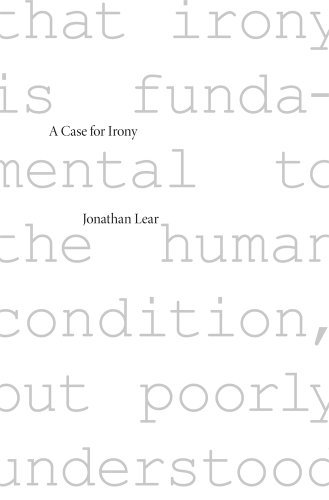What do you think?
Rate this book


Paperback Bunko
First published October 24, 2011
I struggle a bit with (rating) this one. Lear successfully explains, on a conceptual level, what makes his version of irony (rooted in Socratic/Kierkegaardian irony) distinct from ordinary (or even extraordinary) instances of self-questioning, yet the example he provides of Ms. A's experience as Lear's analysand doesn't make a convincing case for irony. It's unclear that Ms. A's questioning of her personal identity as a woman actually even counts as ironic, based on Lear's own argument. Moreover, some of the discussion of Ms. A's gender identity is trite and arguably problematic in areas (a point Christine Korsgaard not-so-subtly makes in her response to Lear, which is included as an appendix to Lear's lectures).
On the other hand, I strongly suspect Lear's thesis is correct: ironic disruption and the striving for ironic existence is a worthwhile and potentially transformative undertaking. My recommendation would be: read Plato's dialogues, read Kierkegaard, and read A Case for Irony, and then come up with your own conception of what role irony should play in your self-conception.